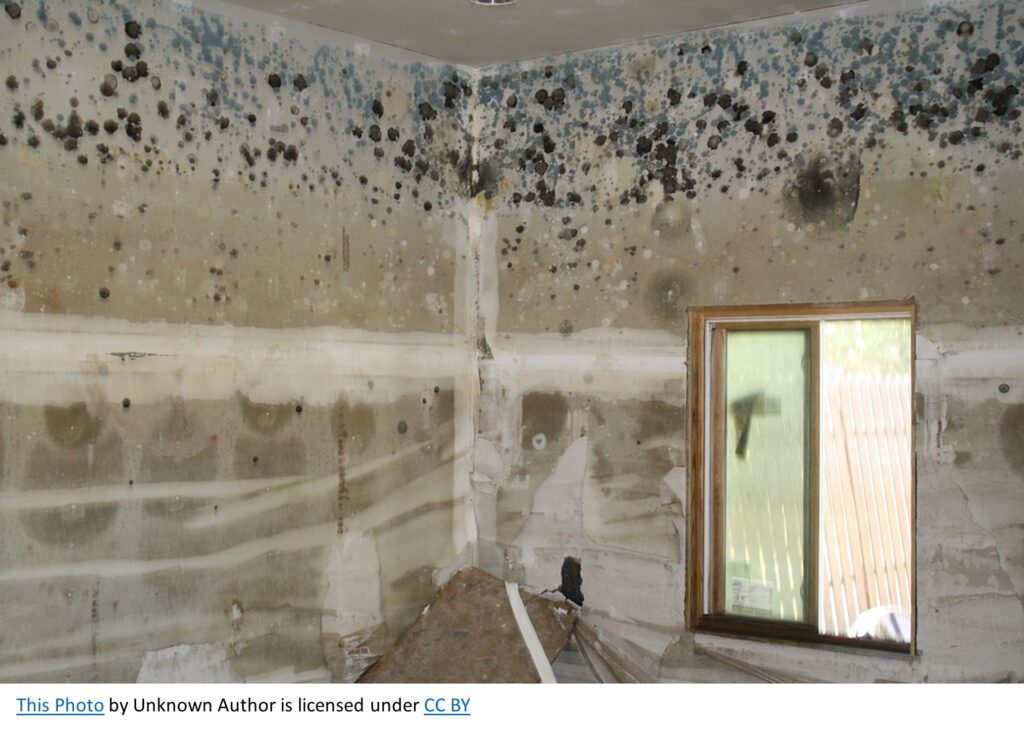The tragic death of 2-year-old Awaab Ishak in 2020, due to mould in his family home, should never happen to another family. (Gov.co.uk)
If you are affected by mould, repairs not being done and health effects related to this – you do have rights.
Private Housing Tenants
Is your home fit to live in?
Landlords have responsibilities to make sure their properties are fit for people to live in. A rented home is unfit to live in when conditions or safety issues are so bad that it’s not reasonable for you to live there.
This could be because the poor conditions:
- affect your health seriously.
- put you at risk of physical harm or injury.
- mean you cannot make full use of your home.
Landlords must make sure your home is fit to live in throughout your tenancy.
Which tenancies are covered?
The rule that a rented home is fit to live in applies to most tenancies regardless of when they started.
This includes if you rent from:
- the council
- a housing association
- a private landlord or letting agent
You were covered straight away if your tenancy started after 19 March 2019 or:
- you signed a new fixed term agreement
- your tenancy became ‘periodic’ (rolling)
Mould
If you rent from a private landlord, you should report any issues with damp and mould to your landlord or your landlord’s managing agent in the first instance. If your landlord fails to deal with the issues, you can contact our Licensing and Housing Enforcement team on 020 8314 6420 or pshe@lewisham.gov.uk.We will liaise with you and your landlord to address any issues with your home. If your landlord fails to comply, we can take enforcement against them.
Repairs
Your landlord is responsible for most repairs in your home. This applies to private landlords, councils and housing associations.
Their responsibilities include repairs to:
- electrical wiring
- gas pipes and boilers
- heating and hot water
- chimneys and ventilation
- sinks, baths, toilets, pipes and drains.
- the structure and exterior of your home, including walls, stairs and bannisters, roof, external doors and windows.
Find out more about who is responsible and how to report repairs
- https://england.shelter.org.uk/housing_advice/repairs/landlord_and_tenant_responsibilities_for_repairs
- https://england.shelter.org.uk/housing_advice/repairs/how_to_report_repairs_to_a_private_landlord
Worried about eviction if you report repairs?
Some private landlords take steps to evict tenants who ask for repairs.
This is called a revenge eviction. Sometimes you can stop a revenge eviction.
Your landlord must follow the legal process. A section 21 eviction can take a few months.
Advice guides and letter templates for private tenants and people looking for a home through a private landlord or letting agent.
More information information can be found on these websites
Private Tenants Advice on Lewisham Council Website
Your landlord’s responsibilities
Get housing advice:
Problems with your landlord
Social Housing Tenants
Is your home fit to live in?
Landlords have responsibilities to make sure their properties are fit for people to live in. A rented home is unfit to live in when conditions or safety issues are so bad that it’s not reasonable for you to live there.
This could be because the poor conditions:
- affect your health seriously.
- put you at risk of physical harm or injury.
- mean you cannot make full use of your home.
Landlords must make sure your home is fit to live in throughout your tenancy.
Which tenancies are covered?
The rule that a rented home is fit to live in applies to most tenancies regardless of when they started.
This includes if you rent from:
- the council
- a housing association
- a private landlord or letting agent
You were covered straight away if your tenancy started after 19 March 2019 or:
- you signed a new fixed term agreement
- your tenancy became ‘periodic’ (rolling)
Mould
If you rent from a private landlord, you should report any issues with damp and mould to your landlord or your landlord’s managing agent in the first instance. If your landlord fails to deal with the issues, you can contact our Licensing and Housing Enforcement team on 020 8314 6420 or pshe@lewisham.gov.uk.We will liaise with you and your landlord to address any issues with your home. If your landlord fails to comply, we can take enforcement against them.
Repairs
Your landlord is responsible for most repairs in your home. This applies to private landlords, councils and housing associations.
Their responsibilities include repairs to:
- electrical wiring
- gas pipes and boilers
- heating and hot water
- chimneys and ventilation
- sinks, baths, toilets, pipes and drains.
- the structure and exterior of your home, including walls, stairs and bannisters, roof, external doors and windows.
Tenants with No Recourse to Public Funds (NRPF)
Contact your nearest Citizens Advice if you need help with your immigration status – they could refer you to an immigration specialist to get more help.
The No Recourse to Public Funds Network has more information about Housing and Benefits on their website
Shelter has information on claiming benefits
Information for social workers and professionals about no recourse to public funds, and Lewisham Council’s procedures, duties and responsibilities.
Visit our Housing advice page here
Read our blog posts here:



